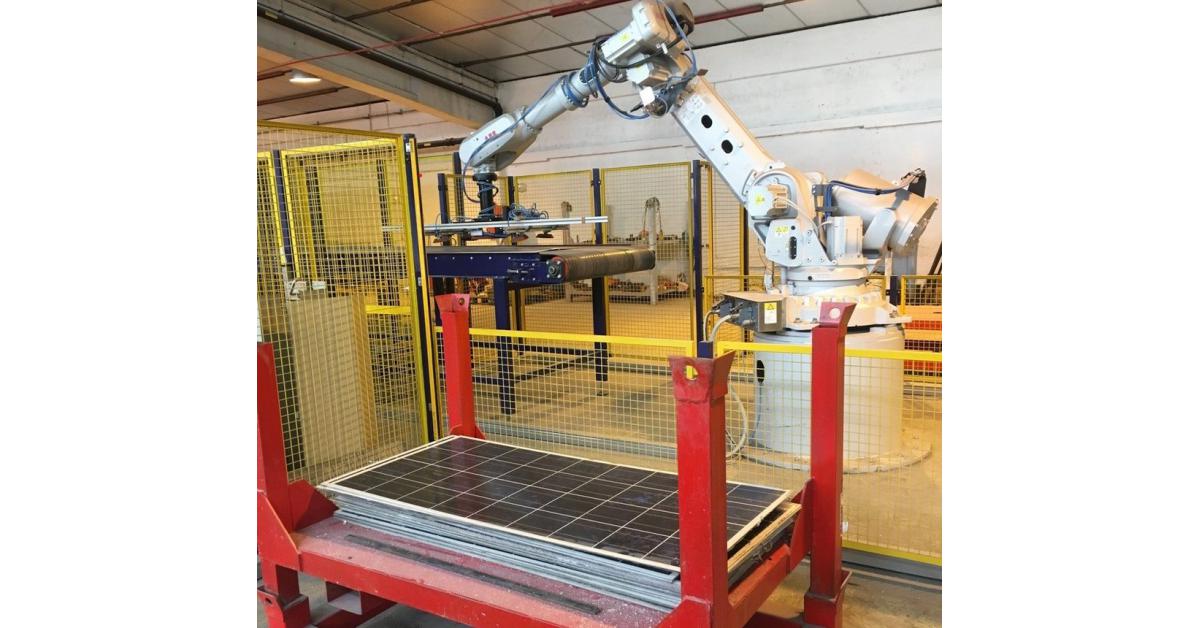
Solar Recovery Corporation is spearheading the growth of the circular economy for solar panels in Australia - an industry which will help to ensure solar panels are retired safely and reduce the impact of panels on the environment. Each facility recovering end-of-life solar panels will save over 4000 metric tonnes of virgin material having to be mined, reducing energy usage and saving on CO2 emissions. Solar Recovery Corporation is firmly focused on making clean energy clean.
Solar panels at the end of their useful life have the potential to become a hazardous waste management issue if disposed of in landfill where materials in the panels can leach into soil and groundwater.
According to Rob Gell of Solar Recovery Corporation, many solar panels are currently ending up in landfill. Similar to all electronic waste from retired technology, solar panels contain hazardous materials and when disposed of incorrectly are dangerous to the environment and human health.
"Some states have banned solar panels from landfill, but by 2030 millions of solar panels could end up in landfill unless we have universal legislation and programs to manage this valuable material. In our efforts to generate sustainable energy, we have potentially caused another massive headache," Gell said.
"Solar panels are expected to operate usefully for two or three decades, however, evidence suggests that damage from storms, reduced performance and other issues typically reduce their lifespan requiring them to be replaced sooner than expected.
"Humidity in Australia seems to be a particular problem. The optimum running lifespan of a solar panel is approximately around 10 to 15 years and installation of solar panels on rooftops and in large solar farms has been rising in Australia since 2010. Nearly three million households have rooftop solar. In 2020 there were 378,451 residential installations alone, the most in the industry's history.
"This means that the number of solar panels nearing their end of life is about to significantly rise resulting in a serious e-waste problem for our country and the planet."
Gell states that Australia must stop dumping panels and instead look to recover the valuable materials as part of the circular economy.
"Dumping solar panels is not the answer, there is a solution available now. This is why the Solar Recovery Corporation has launched - to ethically and sustainably retire solar panels," Gell explained.
"Using our European designed technology, we are able to recover more than 99 percent of materials from end-of-life solar panels.
"The high quality raw materials can then be used in other manufacturing streams participating in the circular economy model and breaking the traditional, unsustainable linear economic model of take, make, consume, and waste.
"The computerised mechanical processing separates and prepares the materials instantly ready to be used in other manufacturing streams. The recovered glass, plastic, silicon, copper and aluminium are all valuable resources."
Solar Recovery Corporation is now accepting end-of-life solar panels in Townsville and Biloela, Queensland. The first processing centre with the European cutting-edge extraction technology will be located in Central Queensland and will commence processing by end of August this year. Further sites are earmarked for regional locations Australia-wide. Solar Recovery Corporation has formed a partnership with European company, La Mia Energia (LME), which manufactures clean technology built to process end-of-life solar PV panels.
"We are focused on diverting 100 percent of all end-of-life solar panels from landfill so the materials can be recovered for use in other industries," Gell said.
"There is a second-hand market for end-of-life solar panels. While this market does assist to address social issues, the risk is that if not properly monitored for compliance with relevant regulations and industry requirements, it could become another environmental issue - which would also result in the loss of valuable resources.
"We are effectively creating a new industry in Australia - a circular economy industry for end-of-life solar panels. Our regional processing centres will create employment supporting industries and growth in new sectors.
"Solar panel installers, waste management companies, asset managers, and anyone involved in solar panel installation, management and removal - as well as every household, must be aware that end-of-life solar panels need to be disposed of properly so that their component materials can be reused."